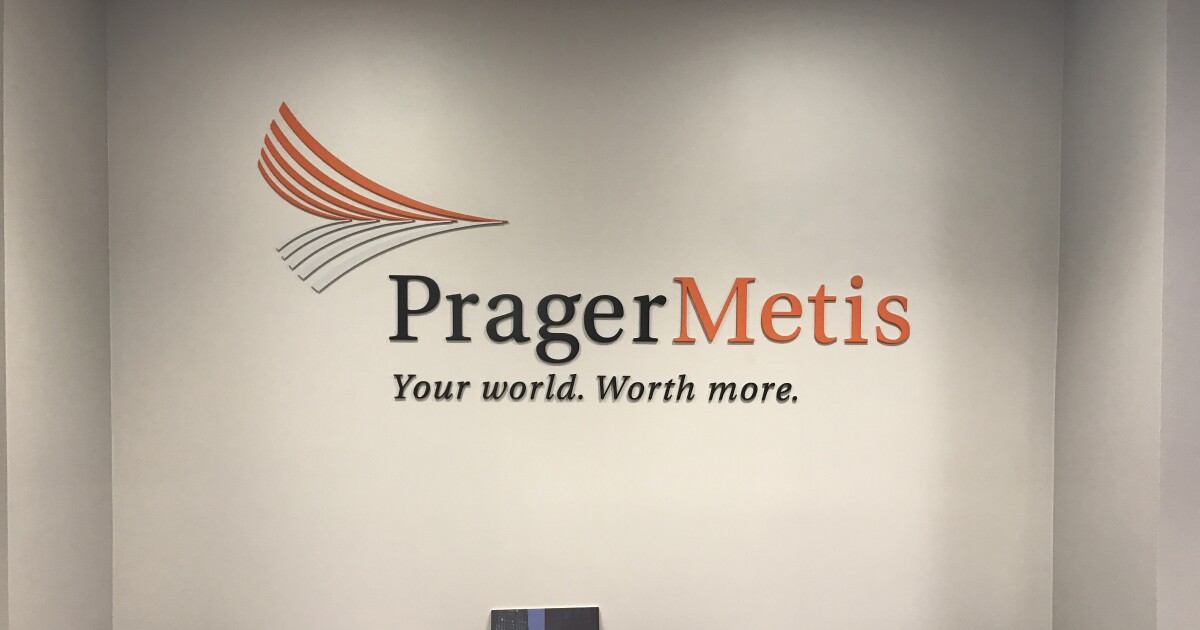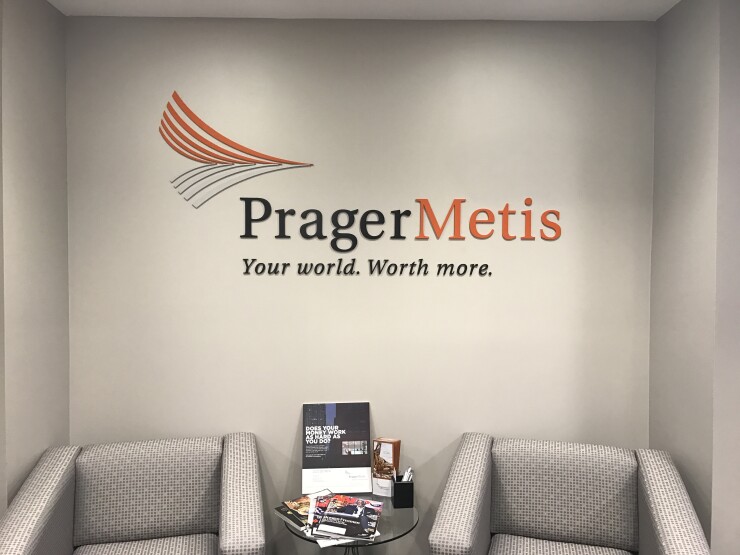Prager Metis CPAs agreed to pay $1.95 million to settle charges with the Securities and Exchange Commission over auditor negligence for its work for the now shuttered crypto exchange FTX, as well as auditor independence violations.
The SEC charged the Top 100 Firm nearly a year ago with violating auditor independence rules on more than 200 audits, reviews and exams. The firm was also one of the targets of a lawsuit by an FTX investor in 2022 following the high-profile collapse of the crypto exchange. The SEC has been looking into the auditing firm’s role in overlooking the problems at the troubled crypto company. Prager Metis undertook an audit of the financial statements of FTX, which was then one of the world’s largest crypto asset trading platforms, in February 2021. But less than two years later, in November 2022, FTX collapsed, wiping out billions in investor equity and billions more in misappropriated customer deposits.
In one of the actions, the SEC alleges that Prager misrepresented its compliance with auditing standards regarding FTX. According to the SEC’s complaint, from February 2021 to April 2022, Prager issued two audit reports for FTX falsely misrepresenting that the audits complied with Generally Accepted Auditing Standards.
The SEC claimed Prager Metis failed to follow GAAS as well as its own policies and procedures by, among other deficiencies, not adequately assessing whether it had the competency and resources to undertake the audit of FTX. According to the complaint, this quality control failure led to Prager Metis failing to comply with GAAS in multiple aspects of the audit — most significantly by failing to understand the increased risk stemming from the relationship between FTX and Alameda Research LLC, a crypto hedge fund controlled by FTX’s CEO.
“The foundational failure to meet GAAS stemmed from the fact that the Prager Metis engagement partner fundamentally did not understand FTX, or the crypto asset markets in which it operated,” said the SEC complaint. “In its rush to accept FTX as an audit client, Prager Metis assembled an engagement team that collectively lacked the competence, experience and knowledge to appropriately conduct the audits. From this initial failure flowed a series of other auditing failures in the design and execution of the audits.”
The SEC’s complaint charges Prager Metis with negligence-based fraud. Without admitting or denying the SEC’s findings, Prager Metis agreed to permanent injunctions, to pay a $745,000 civil penalty, and to undertake remedial actions, including retaining an independent consultant to review and evaluate its audit, review, and quality control policies and procedures and abiding by certain restrictions on accepting new audit clients. The settlement is subject to court approval.
“Effective investor protection requires a collaborative approach that includes both regulators and gatekeepers such as auditors,” said Gurbir Grewal, director of the SEC’s Division of Enforcement, in a statement Tuesday. “To fulfill their role, auditors must, among other things, be independent, exercise due professional care and skepticism, and comply with all applicable professional standards. As we allege in these enforcement actions, Prager Metis fell short in all of these areas. Because Prager’s audits of FTX were conducted without due care, for example, FTX investors lacked crucial protections when making their investment decisions. Ultimately, they were defrauded out of billions of dollars by FTX and bore the consequences when FTX collapsed. By limiting Prager’s ability to take on new business and by requiring it to retain an independent compliance consultant, today’s resolutions not only enhance investor protection, they also serve as a warning to audit professionals that are not appropriately meeting their gatekeeping obligations.”
Prager Metis did not immediately respond to requests for comment.
The SEC also announced Tuesday that the Prager Entities, which collectively include New York-based Prager Metis CPAs LLC and its California professional services firm, Prager Metis CPAs LLP, agreed to the entry of final judgments to settle separate, previous charges for violating auditor independence rules and for aiding and abetting their clients’ violations of federal securities laws. The SEC’s complaint alleged that, between around December 2017 and October 2020, the Prager Entities improperly included indemnification provisions in engagement letters for more than 200 audits, reviews and exams and, as a result, were not independent from their clients, as required under the federal securities laws.
The SEC alleged that Prager continued to sign engagement letters containing indemnification provisions and also issued “accountant’s reports” in which it purported to be independent in connection with its audits and exams, even after Prager’s senior partners repeatedly were notified that inclusion of indemnification provisions in engagement letters rendered Prager not independent. Many of Prager’s clients included those “accountant’s reports” in their filings with the SEC. Prager allegedly also failed to advise its clients of its violations, even after the Public Company Accounting Oversight Board informed Prager that the indemnification provisions violated the independence requirements of the federal securities laws.
The final judgments provide for permanent injunctions, combined civil penalties of $1 million, and combined disgorgement with prejudgment interest of $205,000. The Prager Entities also agreed to be censured. The settlement is subject to court approval.
“Auditor independence is critical to investor protection and a fundamental cornerstone of the integrity of our financial markets,” said Eric Bustillo, director of the SEC’s Miami Regional Office, in a statement. “We are committed to this principle, and we will hold accountable auditors who violate their independence requirements.”


 Blog Post1 week ago
Blog Post1 week ago
 Economics1 week ago
Economics1 week ago
 Finance1 week ago
Finance1 week ago
 Economics1 week ago
Economics1 week ago
 Economics1 week ago
Economics1 week ago
 Personal Finance1 week ago
Personal Finance1 week ago
 Accounting1 week ago
Accounting1 week ago
 Economics1 week ago
Economics1 week ago













